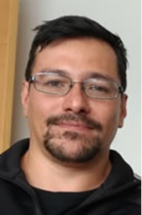Back to Editor profile » Prof. Dr. Héctor Mora-Montes
Prof. Dr. Héctor Mora-Montes

Prof. Dr. Héctor Mora-Montes
Department of Biology, Division of Natural and Exact Sciences, University of Guanajuato, Guanajuato, Mexico
During his post as a clinical analyst, Prof. Mora-Montes developed a system for the differentiation of Candida species, based on in-house zymograms and colony morphology in cornmeal agar. As a postgraduate student, he generated a new and innovative method for in situ determination of glycosyl hydrolase activities and received the “Summa Cum Laude” distinction from Universidad de Guanajuato. Among the most important achievements during his time as a postdoctoral fellow at the University of Aberdeen (Scotland), he set up most of the immunological techniques within the Aberdeen Fungal Group and developed and standardized protocols for the isolation and purification of chitin, phospholipomannan, N-linked and O-linked mannans from fungal cells. Those protocols have not only benefited the Aberdeen Fungal Group, but other international groups dedicated to the study of the fungal cell wall, and are considered among the most popular and standardized methods for isolation and analysis of fungal cell wall components.
In 2010, he established the Laboratory of Fungal Glycobiology at Universidad de Guanajuato (Mexico), with the main goal to understand the mechanisms behind the fungal cell wall synthesis and the interaction of medically relevant fungal pathogens with the host. This laboratory is characterized by its facilities to perform chemical, immunological, genetic, molecular and cellular analyses of human fungal pathogens. Therefore, it is among a handful of research facilities within Mexico and Latin America offering a multidisciplinary and integral approach to understand these pathogens. Currently, the group is developing molecular tools for genetic manipulation of medically relevant fungi, in particular Sporothrix and Candida species. Our group has a solid international reputation in the genetic study of these organisms, in the immune sensing of fungal cells, and the development of alternative models to analyze fungal virulence.
Since 2016, he was awarded the level III distinction by SNI, the highest distinction awarded by the Mexican Government for Mexican Researchers under 65 years old. He currently holds editorial appointments in several peer-reviewed international journals and is the Deputy President of the Latin-American Society of Glycobiology.
Updated 12 April 2024
